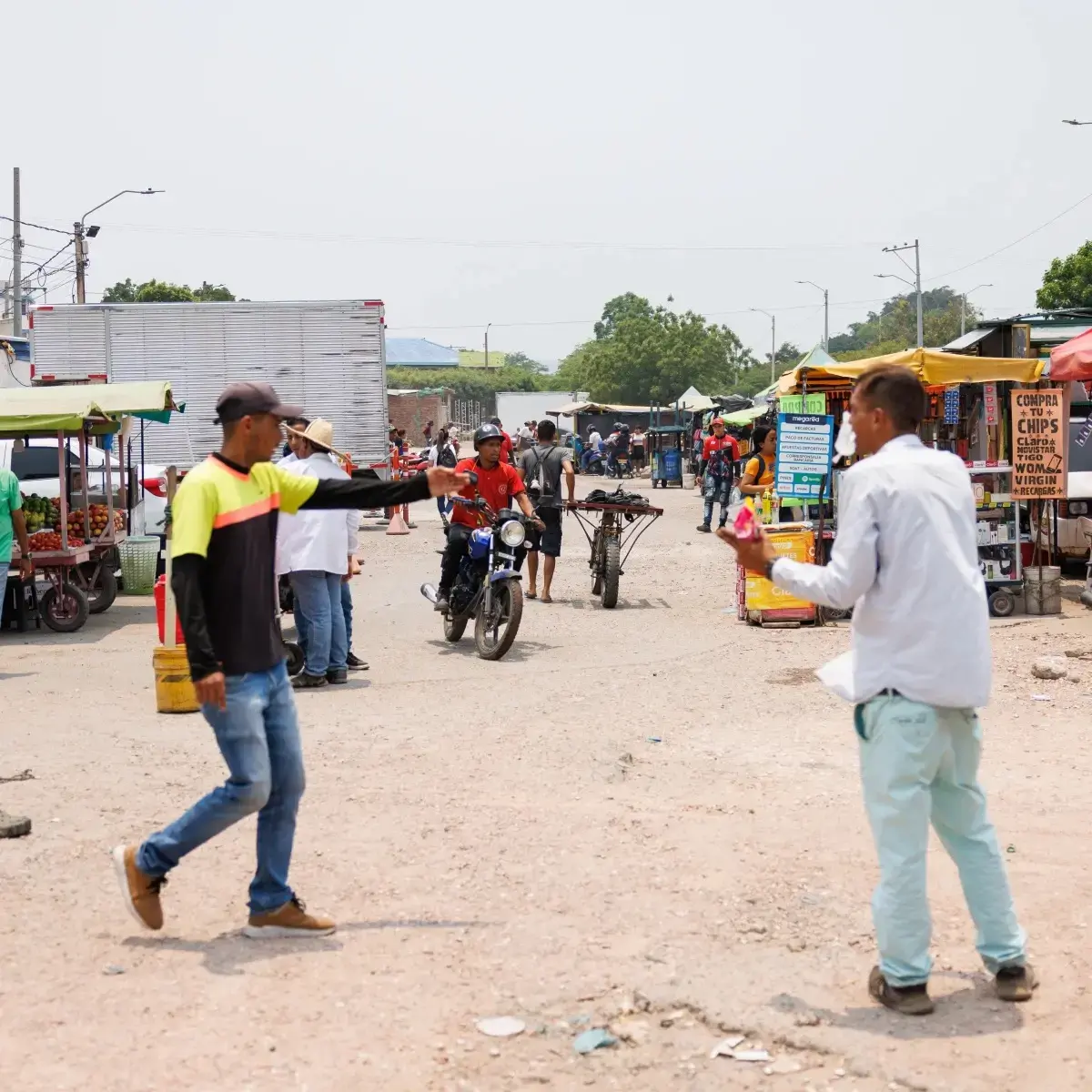
Over the past two years, Chicago has struggled to care for migrants arriving from the Southern border. The majority, about 30,000, are from Venezuela.
But the number of Venezuelans in Chicago hardly compares to the number who have migrated in the past decade to neighboring Colombia. Bogotá, the capital, alone has received more than 600,000 migrants.
This spring, WBEZ reporter Chip Mitchell and Chicago Sun-Times photojournalist Anthony Vazquez flew to Colombia to see how it has handled its Venezuelan influx.

As a nonprofit journalism organization, we depend on your support to fund more than 170 reporting projects every year on critical global and local issues. Donate any amount today to become a Pulitzer Center Champion and receive exclusive benefits!
Mitchell found that Colombia initially rolled out the welcome mat, and, by several measures, absorbed new migrants with little harm and many benefits. Nearly 1.9 million Venezuelans gained paths to formal employment and Colombia’s education and health care systems. But more recently, Colombia’s migrant integration has begun to falter.
In Chicago, many Venezuelan migrants are struggling to get their footing because they cannot work. Advocates argue that new arrivals could mitigate local labor shortages if allowed to work, according to WBEZ reporter Adriana Cardona-Maguidad. Migrant students have already helped reverse the school system’s enrollment decline and advocates say they could help revitalize depopulated neighborhoods.
In this WBEZ Reset conversation, Sasha-Ann Simons talks to:
- Chip Mitchell, veteran WBEZ reporter who has focused on migration and Latin America for much of his career. He shares why Venezuelans are leaving their country, their impact on the Colombian economy, the integration efforts there and the experience of a group of 12 caminantes, or walkers, near the beginning of their journey from Venezuela to the U.S.
- Adriana Cardona-Maguigad, WBEZ’s immigration reporter, originally from Colombia. She shares the latest on the city’s response, efforts by a state lawmaker to get work permits for migrants and her own family’s experiences with migration between Colombia and Venezuela.
Read Mitchell's full story “What Colombia Can Teach Chicago About Managing a Migrant Wave” here.








